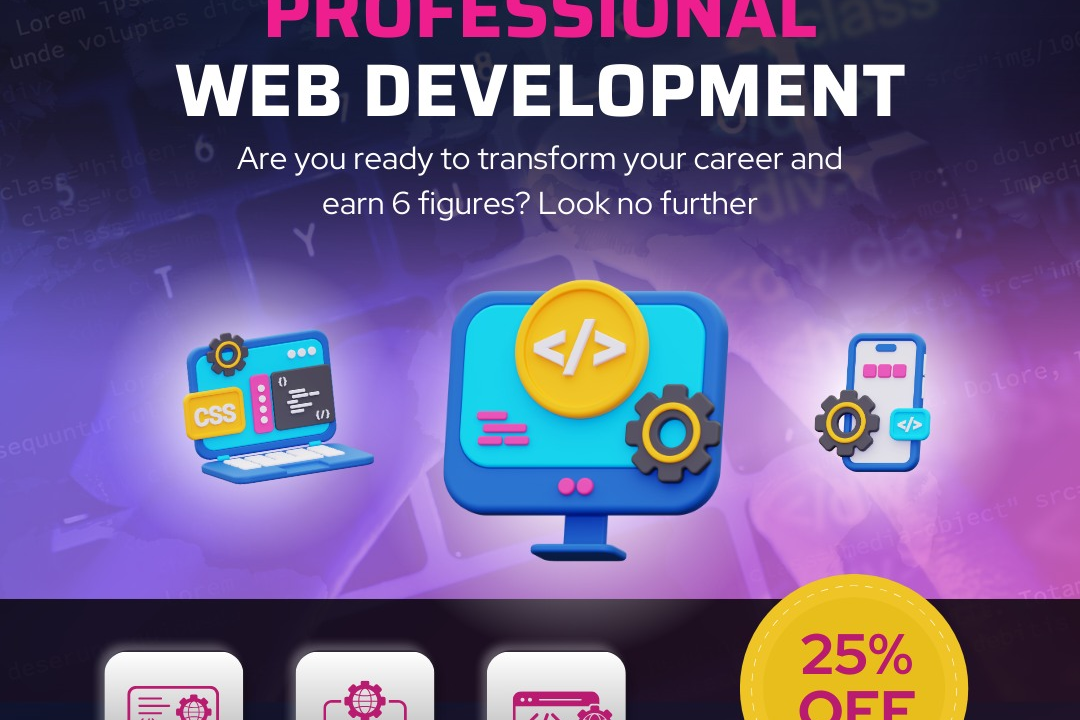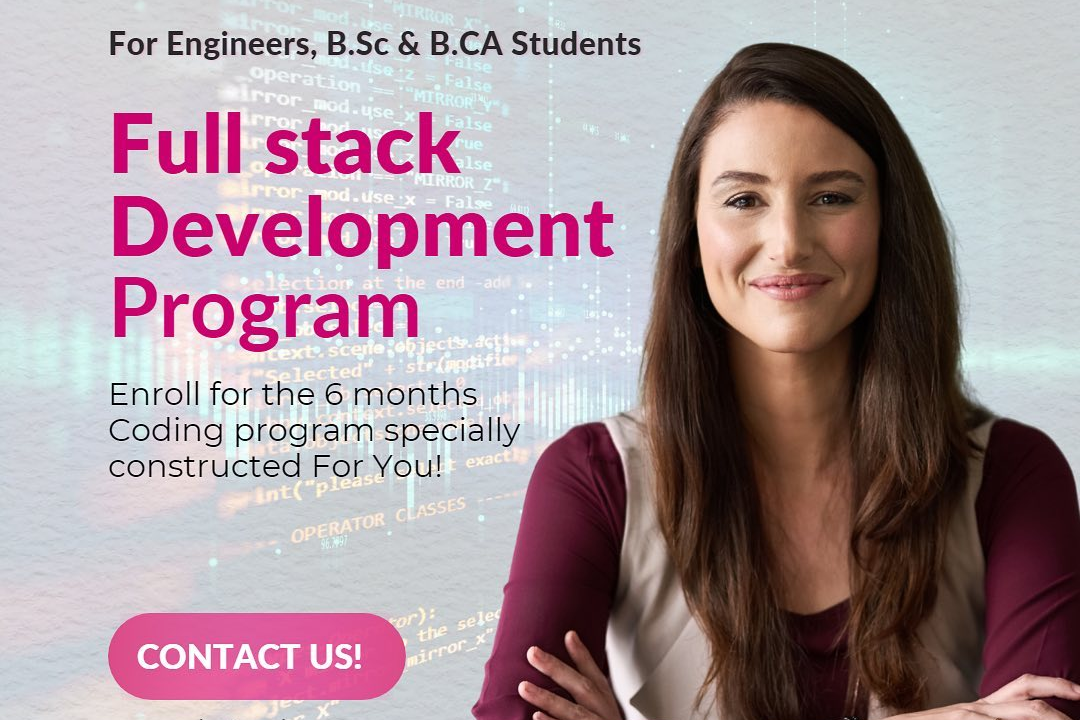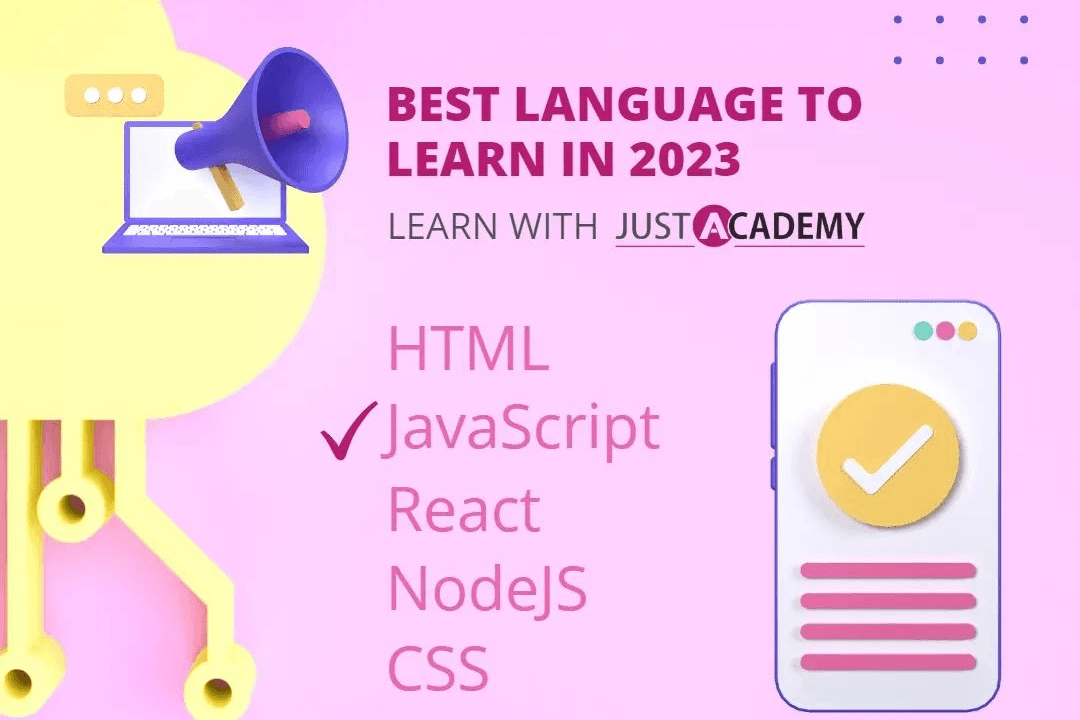Mobile Programming Interview Questions Node Js
Node.js Mobile Programming Interview Questions
Mobile Programming Interview Questions Node Js
Mobile programming interview questions in Node.js are essential for assessing candidates' understanding of server-side development for mobile applications. Node.js has become increasingly popular for building real-time, data-intensive mobile backends due to its asynchronous and event-driven nature, enabling developers to handle a high number of concurrent requests efficiently. Interview questions in this area cover topics such as server architecture, data handling, performance optimization, and mobile-specific considerations, helping interviewers evaluate candidates' technical proficiency, problem-solving skills, and ability to create scalable and efficient mobile applications.
To Download Our Brochure: https://www.justacademy.co/download-brochure-for-free
Message us for more information: +91 9987184296
1 - Describe the Node.js event loop and how it affects application performance. The event loop is a single threaded design pattern that manages all asynchronous operations in Node.js. It provides efficient event processing and non blocking I/O operations, enabling highly concurrent applications.
2) Explain the concept of modules in Node.js and how they are used for code organization and encapsulation. Modules encapsulate related functionality and data within a single file, facilitating code reuse and modularity. They can be imported and exported to share functionality between different parts of the application.
3) Discuss the differences between synchronous and asynchronous operations in Node.js and provide examples. Synchronous operations block the event loop until completion, while asynchronous operations do not. Asynchronous operations use callbacks or promises to handle results once they become available, allowing for non blocking I/O.
4) Explain the role of package managers like npm in Node.js development. Package managers allow developers to install, manage, and share third party software packages. npm is the primary package manager for Node.js, facilitating the discovery, installation, and updating of reusable code.
5) Discuss the challenges and best practices for handling concurrency in Node.js applications. Concurrency can be managed effectively using asynchronous operations and non blocking I/O. Thread pools or worker threads can be employed for more complex scenarios. Synchronization primitives such as mutexes and semaphores are essential for ensuring data consistency.
6) Explain the concept of streams in Node.js and their applications in data processing. Streams represent a sequence of data that can be processed in chunks. They facilitate efficient handling of large data sets and provide a flexible way to manipulate data in a streaming fashion.
7) Discuss the security considerations when developing Node.js applications, including common vulnerabilities and best practices for mitigating them. Node.js applications can be vulnerable to various security threats. Best practices include using secure libraries, implementing input validation, filtering user input, and employing encryption and authentication mechanisms.
8) Explain the role of web frameworks in Node.js development and discuss the advantages and disadvantages of popular frameworks like Express and Koa. Web frameworks provide a structured and efficient approach to building web applications in Node.js. Express and Koa are popular frameworks that offer ease of use, flexibility, and a rich ecosystem of plugins.
9) Discuss the importance of testing in Node.js development and describe different types of tests that can be performed. Testing ensures code quality and reliability. Unit tests verify individual functions, integration tests check interactions between modules, and end to end tests validate the overall functionality of the application.
10) Explain the concepts of REST and HTTP in Node.js development, including different request and response methods. RESTful APIs follow a specific architectural style for designing web services. HTTP is the protocol used for communication between clients and servers, and it supports various request and response methods such as GET, POST, PUT, and DELETE.
11 - Discuss the use of databases in Node.js development, including popular database drivers and the challenges of data management. Node.js supports popular databases like MongoDB, MySQL, and PostgreSQL. Database drivers facilitate interactions with databases and provide methods for creating, reading, updating, and deleting data. Challenges include ensuring data integrity, handling concurrency, and optimizing performance.
12) Explain the concept of caching in Node.js and describe different caching strategies to improve application performance. Caching stores frequently accessed data in memory to reduce the number of database queries and improve response times. Common caching strategies include in memory caching, file based caching, and database level caching.
13) Discuss the use of middleware in Node.js applications, including popular middleware packages and their benefits. Middleware are functions that process requests and responses, offering a convenient way to add functionality such as authentication, authorization, and logging. Express and Koa provide middleware support, and popular middleware packages include helmet, morgan, and body parser.
14) Explain the concept of deployment in Node.js development, including different deployment strategies and considerations for production environments. Deployment involves deploying the application to a production environment. Common strategies include manual deployment, automated deployment using CI/CD tools, and containerization using Docker or Kubernetes. Considerations include performance, scalability, security, and reliability.
15) Discuss the future trends and emerging technologies in Node.js development, including new features and advancements. Node.js is constantly evolving, with new features and advancements emerging regularly. Key trends include microservices architecture, serverless computing, and the integration of artificial intelligence and machine learning techniques.
- Answer accurately and completely. The more information you provide, the more likely you are to receive upvotes.
- Be polite and respectful.* Avoid using foul language or personal attacks.
- Use proper grammar and spelling.* Well written answers are more likely to be upvoted.
- Format your answers well.* Use headings, subheadings, and bullet points to make your answers easy to read.
- Add images and videos.* Visuals can help to make your answers more engaging and informative.
- Share your answers on social media.* This can help to get your answers in front of a wider audience.
- Upvote other users' answers.* This can help to build a sense of community and encourage others to upvote your answers.
- Be patient.* It takes time to build up a good reputation on Stack Overflow. Just keep answering questions and providing helpful information, and eventually you will start to get more upvotes.
- Course Overview
- Master Node.js interview questions for mobile programming with this comprehensive course.
- Course Description
- Master the art of interviewing for mobile programming roles with Node.js. Dive into essential Node.js concepts, algorithms, and data structures commonly tested in interviews. Learn how to formulate effective responses, optimize solutions, and showcase your knowledge of mobile development with confidence.
- Key Features
- 1 - Comprehensive Tool Coverage: Provides hands-on training with a range of industry-standard testing tools, including Selenium, JIRA, LoadRunner, and TestRail.
- 2) Practical Exercises: Features real-world exercises and case studies to apply tools in various testing scenarios.
- 3) Interactive Learning: Includes interactive sessions with industry experts for personalized feedback and guidance.
- 4) Detailed Tutorials: Offers extensive tutorials and documentation on tool functionalities and best practices.
- 5) Advanced Techniques: Covers both fundamental and advanced techniques for using testing tools effectively.
- 6) Data Visualization: Integrates tools for visualizing test metrics and results, enhancing data interpretation and decision-making.
- 7) Tool Integration: Teaches how to integrate testing tools into the software development lifecycle for streamlined workflows.
- 8) Project-Based Learning: Focuses on project-based learning to build practical skills and create a portfolio of completed tasks.
- 9) Career Support: Provides resources and support for applying learned skills to real-world job scenarios, including resume building and interview preparation.
- 10) Up-to-Date Content: Ensures that course materials reflect the latest industry standards and tool updates.
Benefits of taking our course
Functional Tools
1 - Node.js: A cross platform JavaScript runtime environment that enables the development of server side applications and mobile applications.
2) Express.js: A Node.js web framework that provides a set of tools for building and running web applications.
3) MongoDB: A NoSQL database used for storing and querying data in a flexible and scalable way.
4) React Native: A cross platform framework for building native mobile applications using JavaScript.
5) Redux: A state management library for JavaScript applications that is used to manage and update application state in a predictable and efficient way.
6) Jest: A JavaScript testing framework used for writing and running tests for JavaScript applications.
- Complete quests. Quests are objectives that you can complete to earn points. They can be found in the “Quests” tab of the app.
- Watch videos.* You can earn points by watching videos in the “Videos” tab of the app.
- Play games.* You can earn points by playing games in the “Games” tab of the app.
- Invite friends.* You can earn points by inviting your friends to join the app.
- Redeem codes.* You can earn points by redeeming codes that you find in the “Codes” tab of the app.
Browse our course links : https://www.justacademy.co/all-courses
To Join our FREE DEMO Session:
This information is sourced from JustAcademy
Contact Info:
Roshan Chaturvedi
Message us on Whatsapp:
Email id: info@justacademy.co












